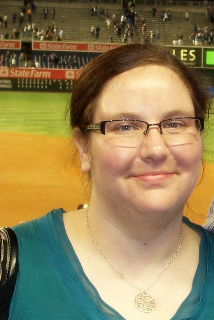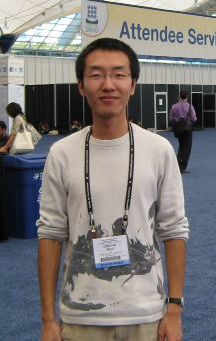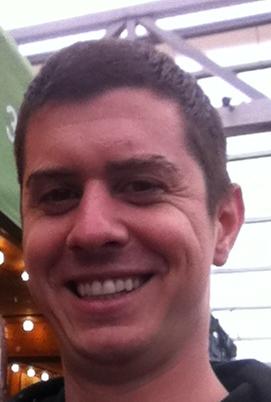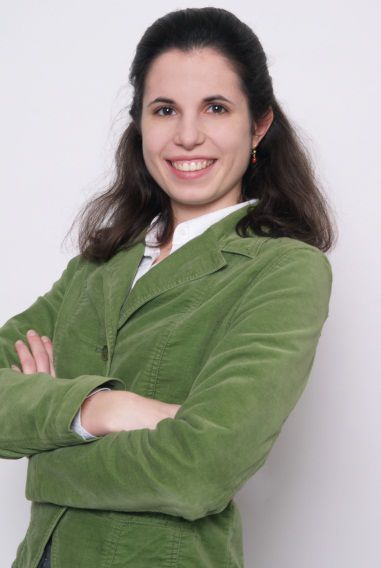 DONATE AIR MILES
DONATE AIR MILES
Capita Foundation needs your unused airline miles to support air travel for pre
and postdoc students to attend The Auditory System Gordon Research Seminar and
Conference,July 7-13, 2012 at Bates College, Lewiston, Maine.
Your airline mileage contribution is tax deductable to the extent allowed by law.
Auditory System Flyer.pdf
Please see our list of pre and postdoc students below on this page.
We would be very appreciative of your willingness to donate air travel for these
outstanding individuals, so that they may have the opportunity to present their
work, and network with other young investigators at this prestigious event.
You can choose to be personally connected with the applicant to transfer your airline
miles or have one of Capita Foundation adminsistrators handle the transaction for
you. If interested, please email our office:
info@capitafoundation.orgor call 619-849-9850. Thank you.
APPLICANTS

Katie Willis studies the anatomy and physiology of sound localization as well as
how middle ear cavities can improve hearing underwater. She is broadly interested
in how sensory systems have evolved. She digitally reconstructs the connections
of brain areas used to localize sound, as well as individual neurons. This approach
is paired with physiology in order to understand how itime differences between ears
are detected.
Katie L. Willis
PhD Candidate
Neuroscience and Cognitive Science
Department of Biology
University of Maryland, College Park

People speak every day. We take it for granted as it is such an easy and effective
way for communication. However, sad cases strike us when one has difficulties with
speech. Kids with stuttering find it hard to join their peers. People with speech
problems after stroke need extra effort to communicate with their family. Up till
now, we haven’t found efficient ways to solve these problems. This is largely due
to the limited knowledge of how speech is generated and controlled by our brain.
The control of voices and the utterance of words is a complicated procedure involving
individual and collaborative functions of multiple brain regions. For example, auditory
feedback has recently been found to be crucial for monitoring and maintaining our
speech. By altering auditory feedback in experiment settings, people may fail to
speak or change their voice largely. My research investigates the brain mechanism
underlying real-time control of speech by introducing perturbed auditory feedback.
Through laboratory controlled manners, I can systematically characterize the quality
of speech in various feedback conditions. I also employ an animal model to study
the neural activities in the brain which encode vocalizations. This research will
enrich our understanding of how auditory information contributes to speech control
and how speech is initiated and maintained. Therefore, it potentially helps doctors
in the future to better treat the related disorders and improve people’s life.
Lingyun Zhao
Graduate Student
Lab of Auditory Neurophysiology
Department of Biomedical Engineering
School of Medicine
Johns Hopkins University
720 Rutland Ave, Traylor 412
Baltimore, MD, 21205

Cochlear implants (CIs) have become a more increasingly common practical treatment
for providing a sense of sound to individuals with severe-to-profound hearing loss.
However, CI recipients still experience persistent impairments in the ability to
accurately localize sound sources and understanding speech in everyday, noisy and
reverberant environments can be extremely difficult. Thus, there remains room for
improvements to further advance CI technology to increase user performance in more
realistic, complex acoustic environments to that observed for normal hearing (NH)
individuals. One approach to bridging the gap between CI and NH listening performance
has been to identify possible differences between the two groups and make the factors
found to be beneficial to NH listening available in the CI condition. My research
is motivated by understanding how the NH auditory system localizes different sound
sources when given similar CI speech processed acoustical information via a CI simulator
known as a vocoder. By investigating the abilities of NH listeners to localize speech
stimuli that has been subjected to similar signal processing used in CI encoding
strategies, we can begin to identify stages of the processing where improvements
are needed and how to approach providing the CI recipient with the most appropriate
real-world acoustic information. The Binaural Hearing and Speech Lab-Waisman Center
at the Univeristy of Wisconsin, where I am an associate researcher, also has the
capability to test different signal processing approaches guided by the findings
of my research with actual CI recipients. Outcomes of this research have implications
for developing CI encoding strategies aimed at improving the ability to accurately
localize speech signals and increasing the ability to understand speech in everyday,
noisy environments.
Heath Jones, Ph.D.
Post Doc/Research Associate
Waisman Center
Binaural Hearing and Speech Lab
University of Wisconsin Madison
1500 Highland Avenue Madison, WI 53705-2280

In my PhD thesis, I am investigating metabolic maturation of neurones in the auditory
brainstem. These auditory brainstem neurones enable mammals to orient within an
auditory environment by computing the localisation of sound sources in the environment.
Since this process requires high precision information transfer and is thus very
energy-consuming, the metabolism of these neurones is tightly regulated, to ensure
that energy is neither abundant nor lacking. We investigated the regulation of several
metabolic marker proteins in these neurones in the Mongolian gerbil, which is our
experimental animal model. This animal is especially suited for auditory research
as it is sensitive to the same frequencies as humans and in addition shows a very
similar neuroanatomical circuitry as humans. Mongolian gerbils are deaf at birth
and only acquire auditory perception some 10 days after birth during a period, which
is referred to as hearing onset. We could show that in spite of the neuronal connections
being established way before hearing onset, the metabolic capability of these neurones
is only up-regulated during the time of hearing onset, when functional information
processing occurs. This indicates that neuronal metabolism is tightly coupled with
functional importance of signal transfer.
Barbara Trattner
Division of Neurobiology
Department Biology II
Ludwig-Maximilians-Universität München
Großhaderner Straße 2
D-82152 Planegg-Martinsried
FAQ
How will I know if the scientist actually used the miles for research?
We require that all airline mile recipients submit a copy of their itinerary within
a month of their travel.
How will my donation be recognized?
All airline mile donors will receive a thank you letter from Capita Foundation,
and recognition on our website. We will encourage airline mile recipients
to follow-up with donors concerning highlights of their participation at a conference
or visit to another lab.
I want to donate miles, but I simply don't have the time to contact my intended
recipient and process the transfer of miles.
No problem - we're happy to facilitate.
Simply call Capita Foundation at (619) 849-9850 or email
robert@capitafoundation.org
Capita Foundation is an independent, privately funded 501(c)(3) nonprofit organization.
Tax ID (EIN) # 20-1685136.